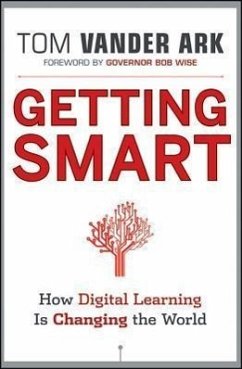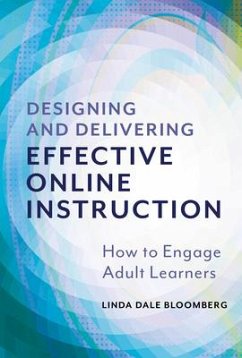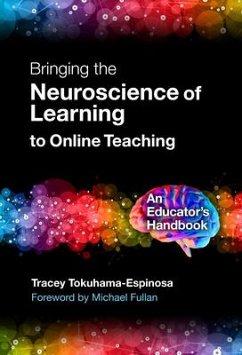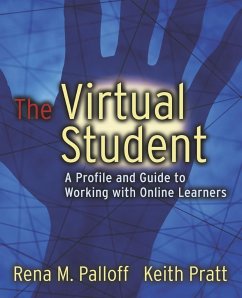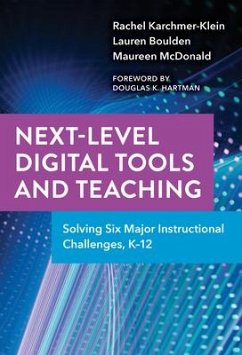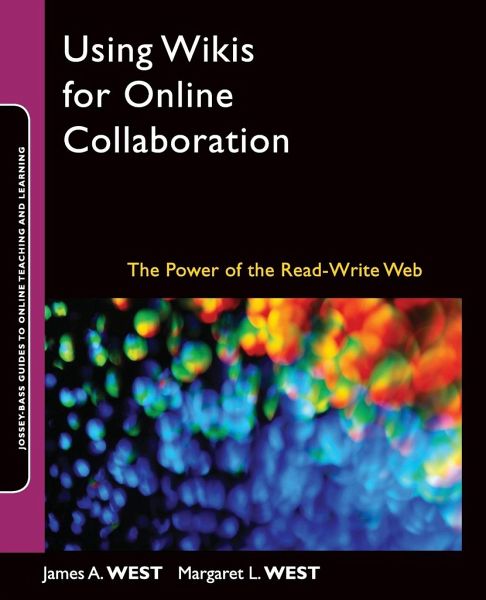
Using Wikis for Online Collaboration
Versandkostenfrei!
Versandfertig in über 4 Wochen
31,99 €
inkl. MwSt.
Weitere Ausgaben:

PAYBACK Punkte
16 °P sammeln!
Using Wikis for Online Collaboration Using Wikis for Online Collaboration is a practical resource for learning to harness the power of wikis to create a shared environment where online students can actively participate in the integration and co-creation of knowledge. This important book shows how to plan, design, and facilitate collaborative wiki projects into effective online courses. Written by James and Margaret West, Using Wikis for Online Collaboration offers * Information on the technology and infrastructure needed for implementing a wiki * Guidelines for selecting wiki services and soft...
Using Wikis for Online Collaboration Using Wikis for Online Collaboration is a practical resource for learning to harness the power of wikis to create a shared environment where online students can actively participate in the integration and co-creation of knowledge. This important book shows how to plan, design, and facilitate collaborative wiki projects into effective online courses. Written by James and Margaret West, Using Wikis for Online Collaboration offers * Information on the technology and infrastructure needed for implementing a wiki * Guidelines for selecting wiki services and software * Ideas for preparing online students for success using wikis * Advice on pedagogical issues when creating wikis * Tips for planning and designing the wiki project framework * Suggestions for managing the collaborative writing process * Suggested projects that support cognitive processing and knowledge construction * Guidance for creating complex activities that highlight critical thinking and analysis Using Wikis for Online Collaboration is the seventh book in the Jossey-Bass Guides to Online Teaching and Learning series. It offers concrete and practical resources to help higher education practitioners meet the challenges of the online learning environment. Praise for Using Wikis for Online Collaboration "A practical guide for the 'newbie' as well as the experienced technology user or instructional designer. Using Wikis for Online Collaboration provides invaluable guidelines and activities for incorporating this important Web 2.0 tool into an online or classroom setting." --J. Ana Donaldson, associate professor, Instructional Technology, University of Northern Iowa





